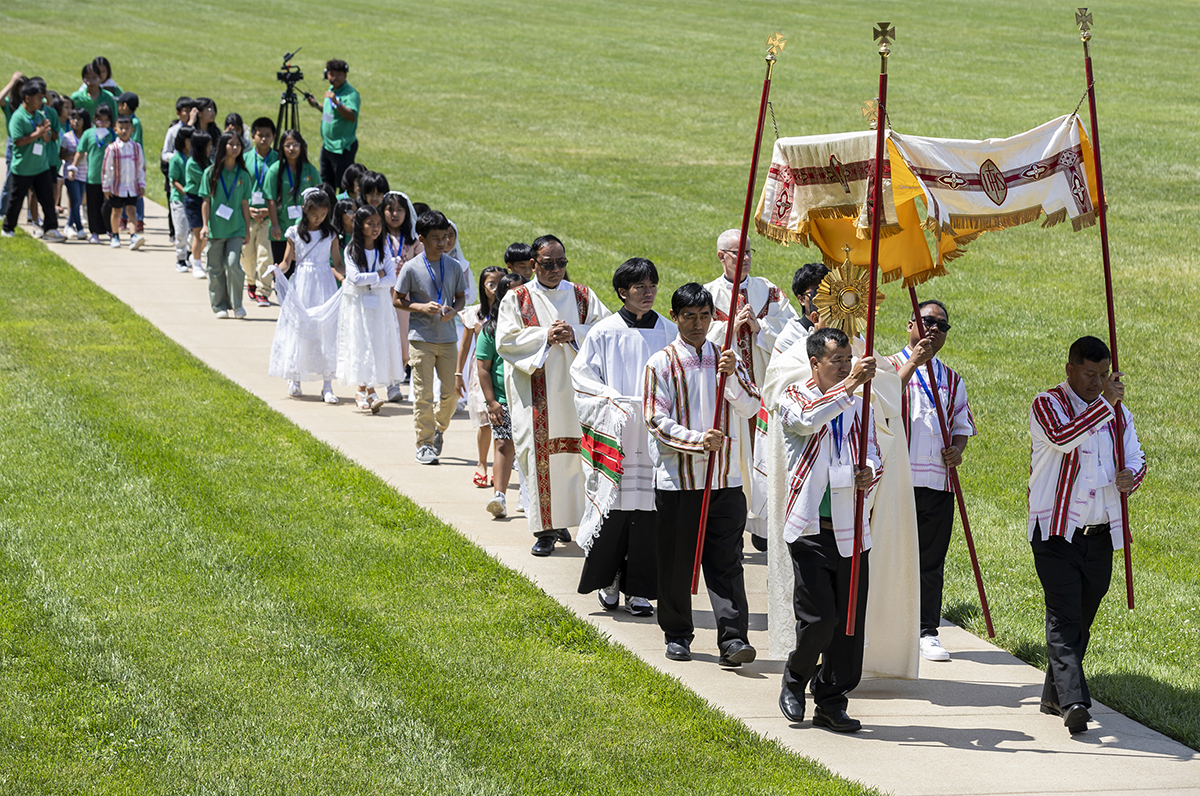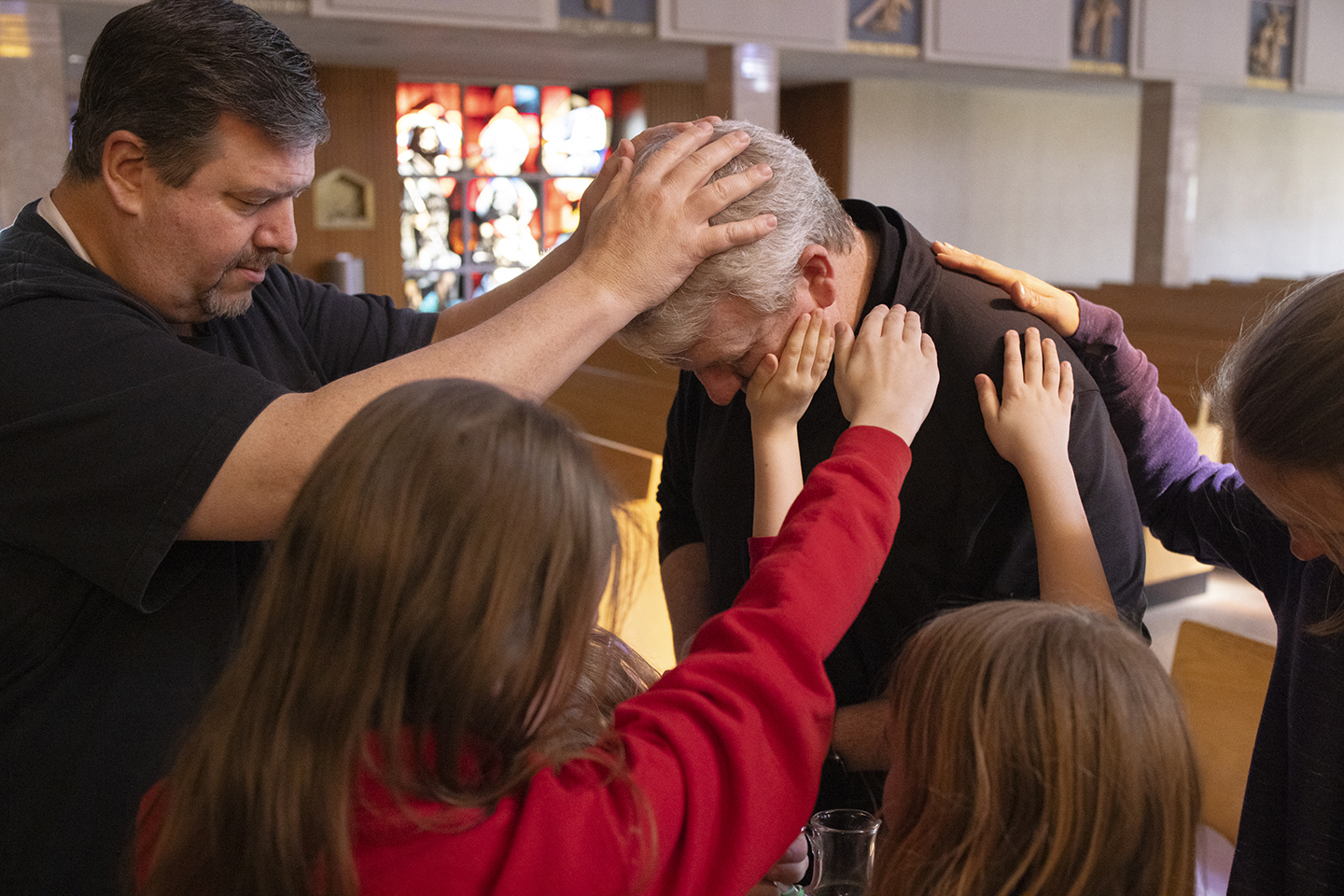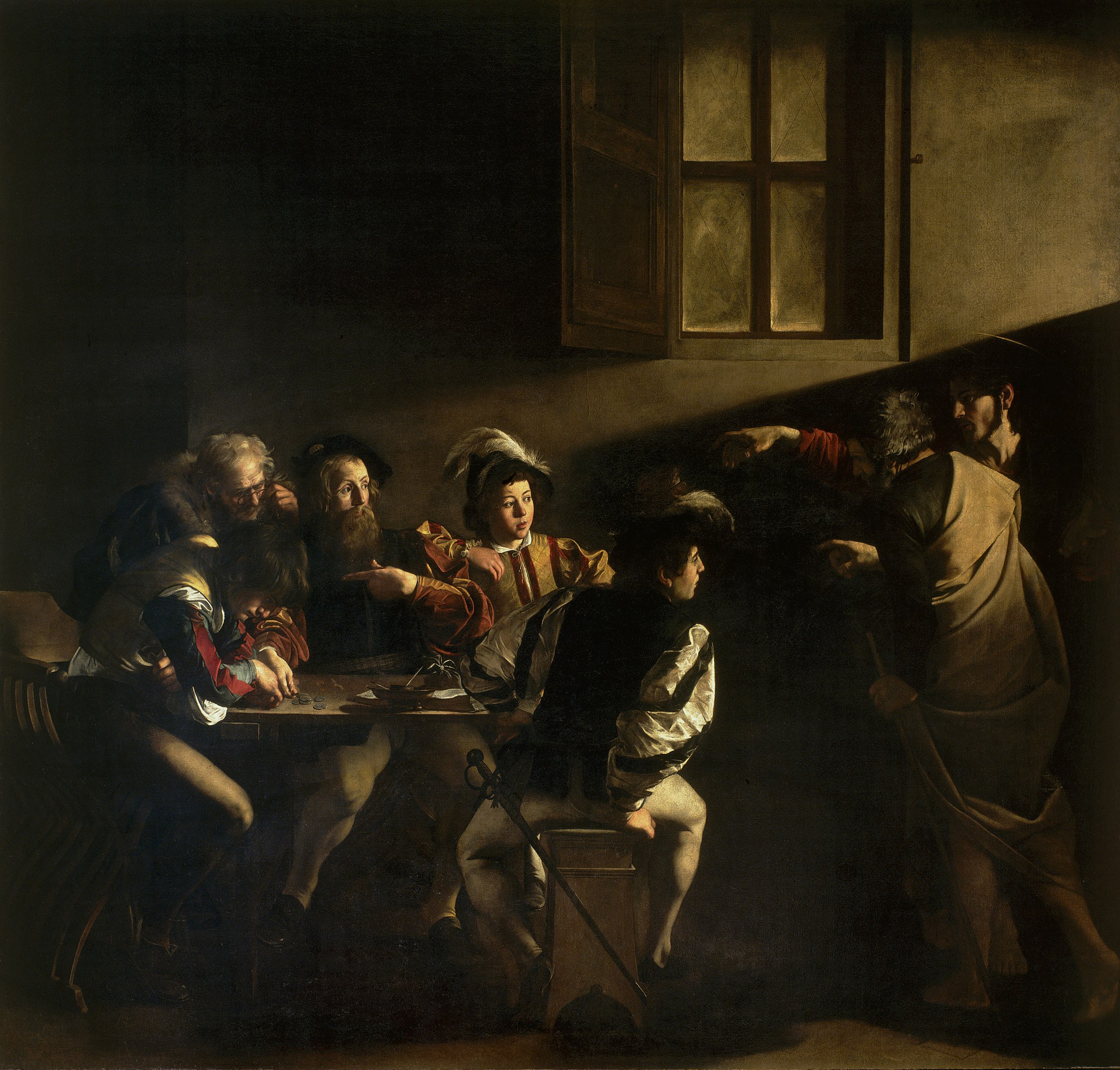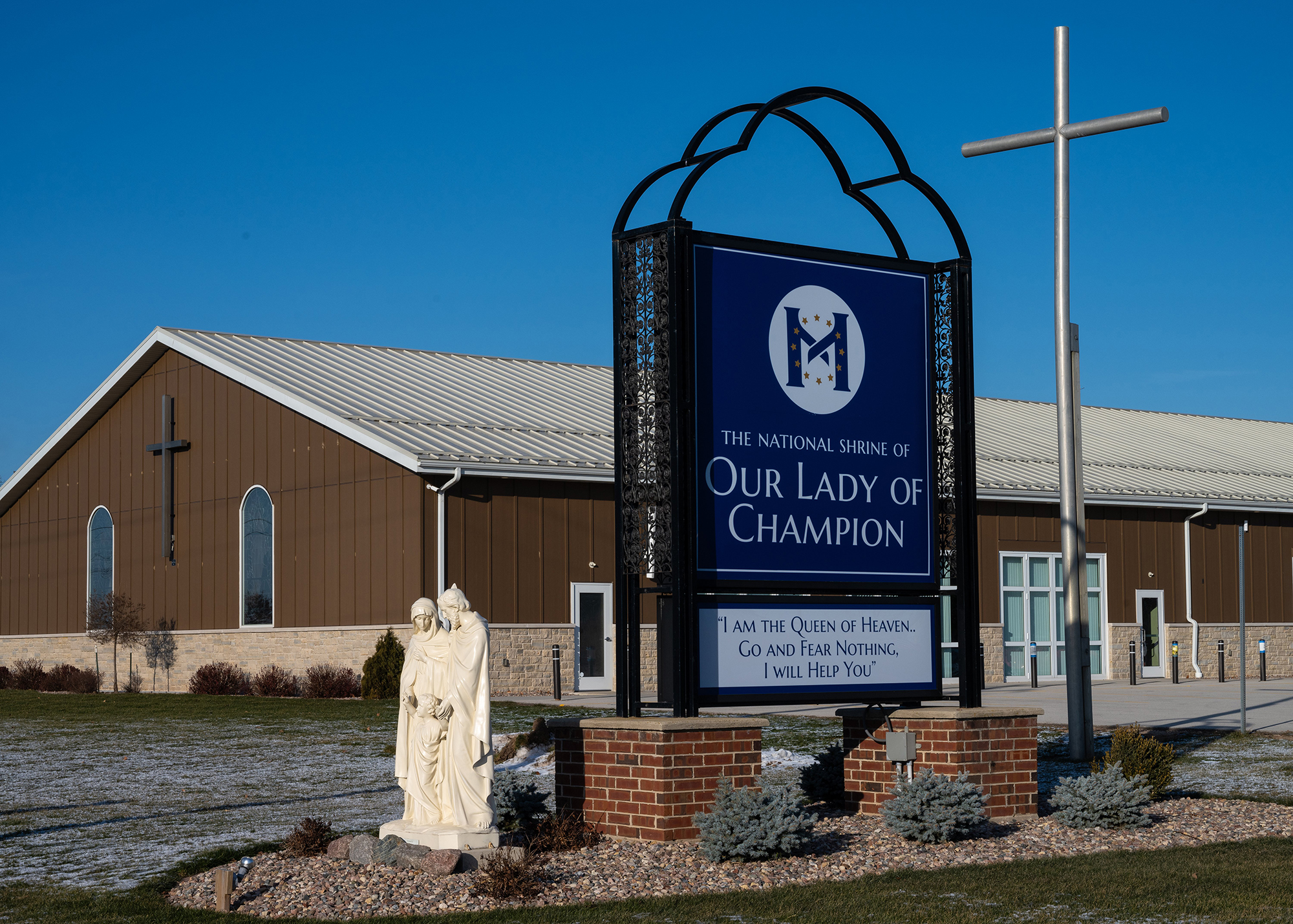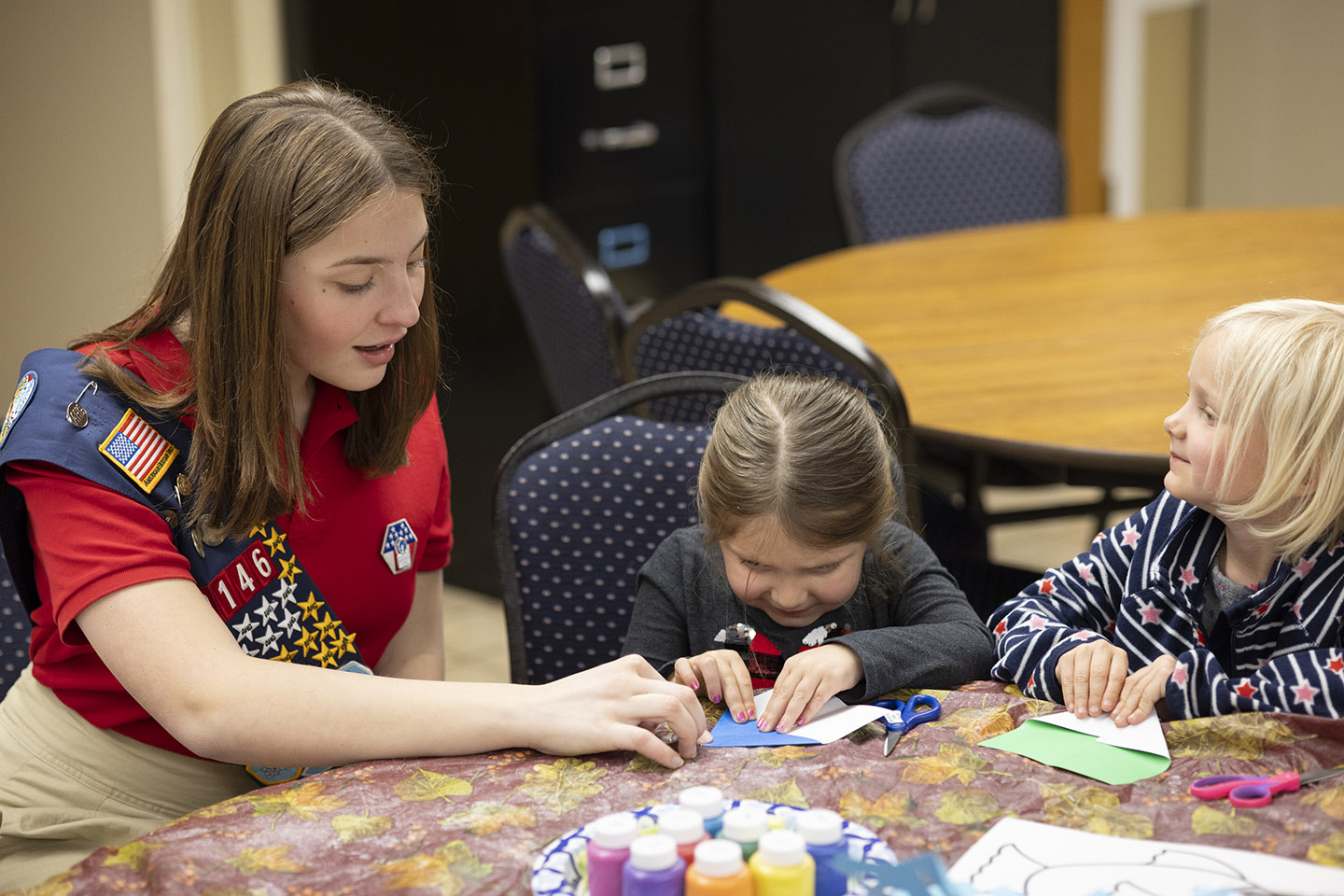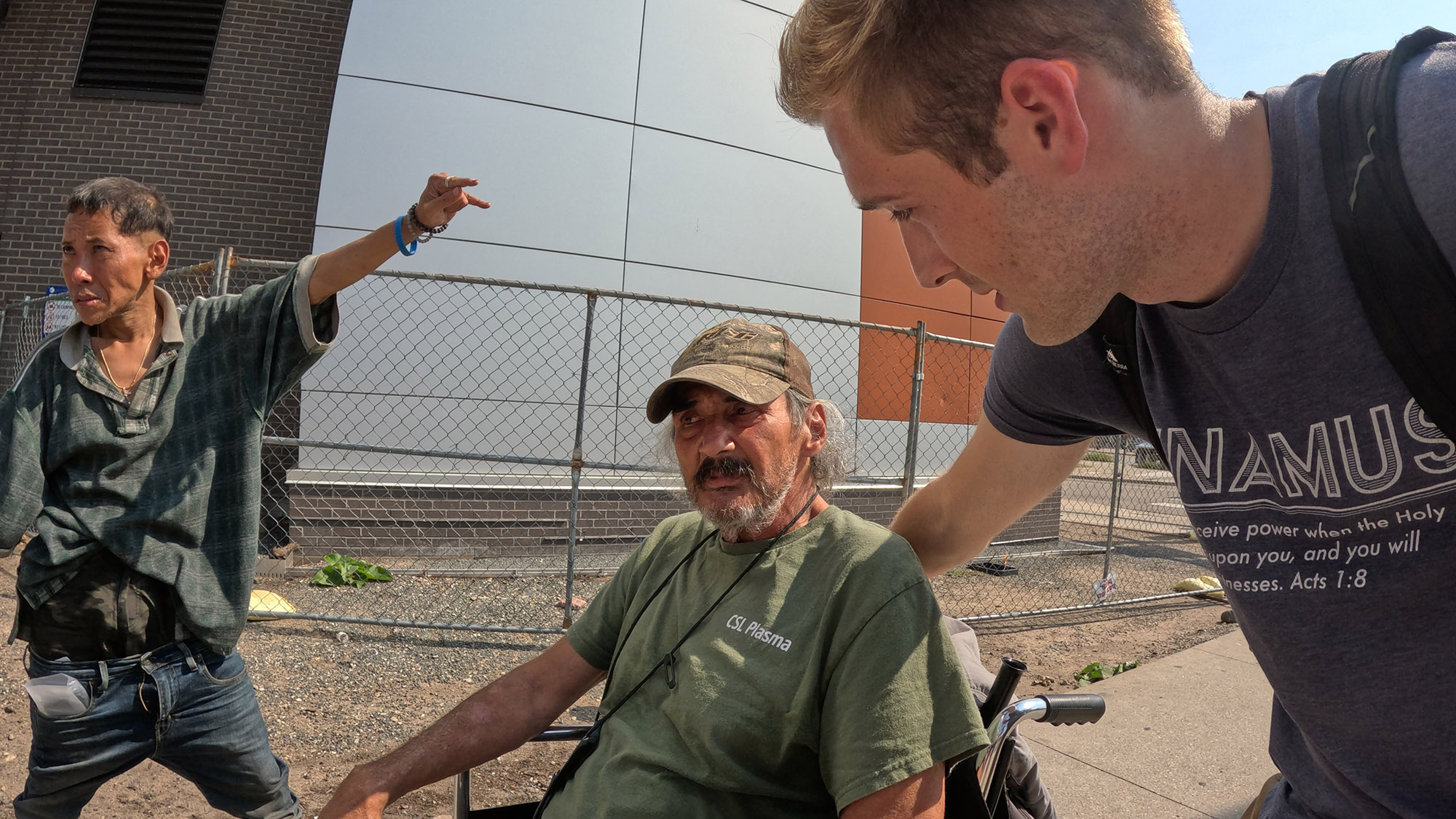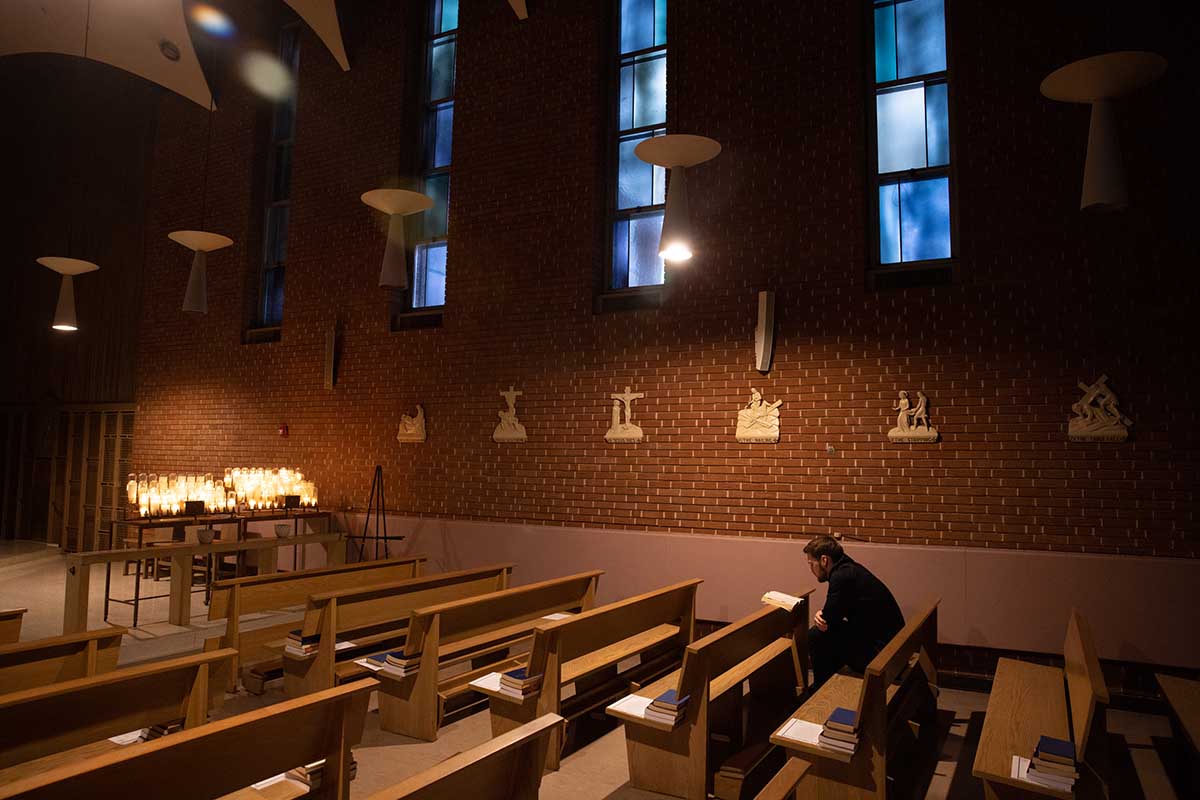Synod document: New ministries can serve evangelization in Amazon
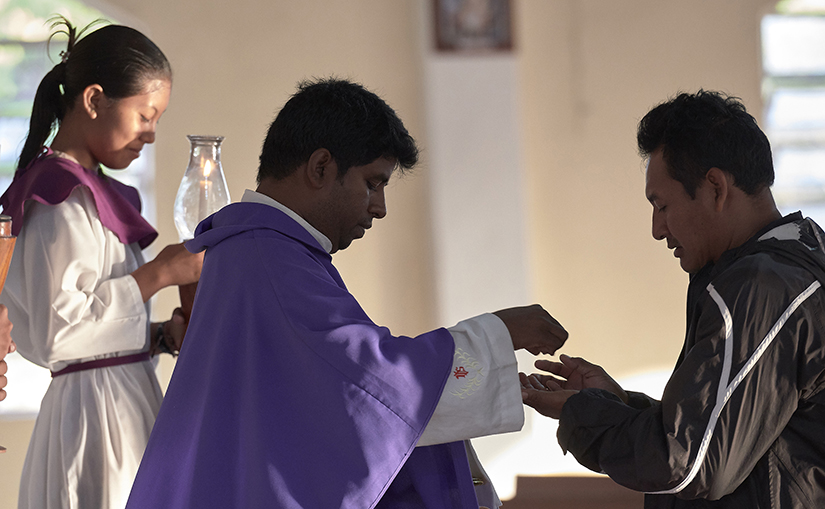
Synod of Bishops on Amazon final document focused on ‘new paths for the Church and for an integral ecology’
VATICAN CITY — To proclaim the Gospel message of hope, the Catholic Church in the Amazon must open new paths of evangelization in the region, including by instituting new ministries for lay men and women, the Synod of Bishops stated.
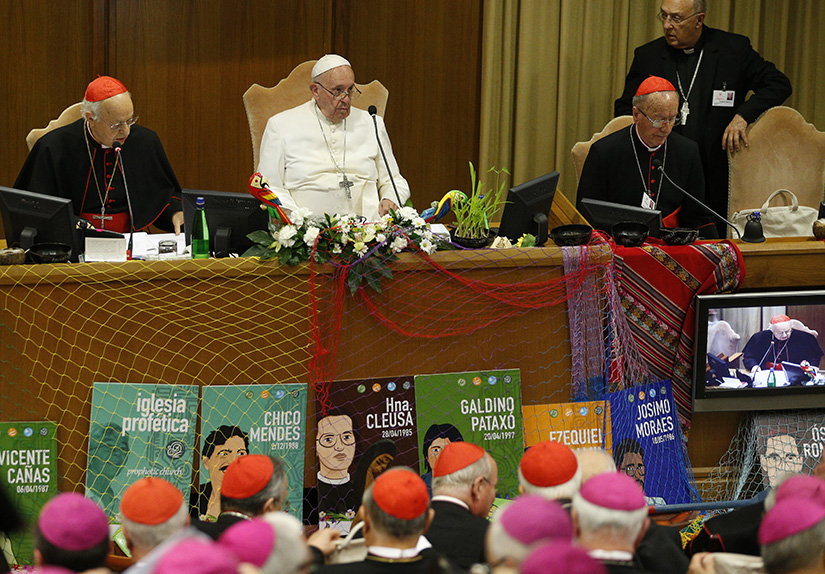
At the heart of the final document of the Synod of Bishops for the Amazon was the need to bring the good news to the Amazon, a mission that includes safeguarding the indigenous people, cultures and land that are under constant threat of annihilation.
“The Amazon rainforest is a ‘biological heart’ for the increasingly threatened earth,” according to the final document, released Oct. 26 after synod members voted on it.
The Amazon, members said, is on “a rampant race to death. It is scientifically proven that the disappearance of the Amazon biome will have a catastrophic impact on the planet as a whole!”
The synod brought together 185 voting members — cardinals, bishops, 20 priests and one religious brother — and 80 experts and observers to discuss “new paths for the Church and for an integral ecology.”
All 120 paragraphs in the final document garnered the necessary two-thirds approval needed for passage. The Vatican said 181 synod members were present, so each paragraph needed 120 votes to pass.
Ecological conversion
The focus of the synod’s final document was the call for the Church to further its mission in proclaiming the Good News by uniting itself more to the people of the Amazon who, for decades, have suffered the consequences of humankind’s greed.
At the synod, “We discovered that the mighty waters of the Spirit, similar to those of the Amazon River, which periodically overflow, lead us to this overflowing life that God offers us to share in the
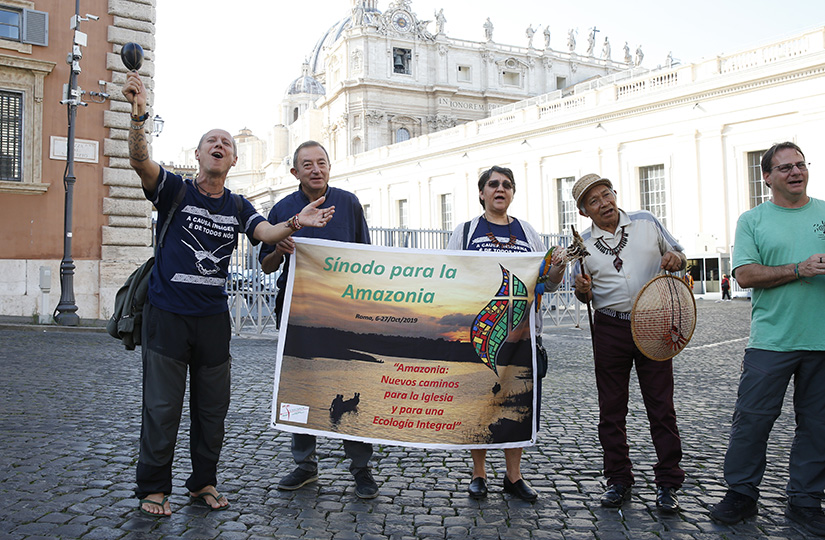
announcement” of the Gospel,” the document stated.
The document underscores the crucial role of Amazonian ecosystems in regulating the global climate and as an important source of fresh water that “connects ecosystems, cultures and the development of the territory.”
The Amazon faces environmental threats that make it “a wounded and deformed beauty, a place of suffering and violence,” the bishops wrote. Violence against nature, in the form of rampant extraction of resources, unsustainable development and climate change, also have “serious social consequences.”
To bring greater awareness and responsibility to the universal Church, the synod document proposed a definition of ecological sin as an act of commission or omission against God, against one’s neighbor, the community and the environment.”
The document also proposed the creation of “special ministries for the care of our ‘common home’” that would promote ways of caring for the environment “at the parish level.”
The synod called on all Christians to show their awareness of the value of God’s creation by countering the current “culture of excessive consumption” through recycling, reducing their use of fossil fuels and plastic, as well as by reducing their consumption of meat and fish.
New roles and ministries
The discussions that took place in the synod, the document stated, also offered bishops an opportunity to reflect “on how to structure the local Churches” in order to address the needs of a “Church with an Amazonian face.”
Among those ways are new ministries and roles for the laity, including “in consultation or decision-making in the life and mission of the Church.”
To increase the Church’s presence in areas that lack priests, the document proposed that bishops entrust “the exercise of the pastoral care of the communities to a person not invested” with the priesthood for “a specific period of time.”
However, “the priest, with the power and faculty of the parish priest, is always responsible for the community,” the document stated.
Synod members asked for further discussion on the idea of women deacons, but approved several paragraphs in the document insisting that their role in leading Catholic communities be recognized and that “the voice of women can be heard, they are consulted and participate in decision-making” in the Church.
The final document also emphasized the importance of the Eucharist as “the source and summit of all Christian life.” However, it acknowledged that a lack of priests means Catholics in the Amazon have only sporadic access to the Eucharist, reconciliation and anointing of the sick.
While highlighting the gift of celibacy in the Catholic Church and the need for celibate priests in the region, the document proposed the ordination of “suitable and esteemed men of the community, who have had a fruitful permanent diaconate and receive an adequate formation for the priesthood, having a legitimately constituted and stable family.”
Although the paragraph regarding the proposal for ordaining married was approved, it received the least amount of support among those who voted, with 128 in favor and 41 opposed.
Speaking after the vote on the document, Pope Francis said the synod’s discussion on women “falls short” of explaining who women are in the Church, particularly “in the transmission of faith, in the preservation of culture.”
Synod members also asked Pope Francis to revise St. Paul VI’s 1972 document on ministries, “Ministeria Quaedam” (“Some Ministries”), so that women could be installed formally as lectors and acolytes and in any new ministries to be developed.
While noting that a “large number” of participants in the pre-synod consultations asked for women deacons and that several members of the synod itself made such a call, the final document did not include an explicit request for such a move.
Amazonian rite
The final document also spoke of the “elaboration of an Amazonian rite,” as several synod members had proposed. The bishops voted to ask for a special post-synodal commission of bishops to be tasked with studying the idea.
Citing the Second Vatican Council’s Dogmatic Constitution on the Church document, “Lumen Gentium,” the final document stated that the proposed rite would express “the liturgical, theological, disciplinary and spiritual patrimony of the Amazon” in a way similar to the Eastern Catholic churches.
However, in his address following the vote on the final document Oct. 26, the pope reminded synod members that the creation of an Amazonian rite “is within the competence of the Congregation for Divine Worship and can be done according to the appropriate criteria.”
After the votes were cast, Pope Francis told synod participants that he hoped to publish a post-synodal exhortation “before the end of the year so that not too much time has passed.”
“A word from the pope about what he has lived in the synod may do some good,” the pope said. “It all depends on how much time I have to think.”

Christians must shun self-worship, pope says at synod’s final Mass
By Barbara J. Fraser | Catholic News Service
VATICAN CITY — Poor people from the Amazon have shown that God’s creation must be treated “not as a resource to be exploited but as a home to be preserved, with trust in God,” Pope Francis said.
He celebrated Mass Oct. 27 to mark the end of the Synod of Bishops for the Amazon, which brought together bishops, priests and religious, and lay men and women, including indigenous people, from the nine Amazonian countries.
Synod participants, some wearing their native dress and feathered headdresses, led the procession into St. Peter’s Basilica. During the offertory, an indigenous woman presented the pope with a plant.
Instead of using a crosier made of precious metals, the pope carried a carved wooden crosier that the Vatican said was a gift from the synod. During the assembly, participants described the environmental devastation and social problems caused by mining in the Amazon.
Pope Francis’ homily about the Gospel parable of the self-righteous Pharisee and the tax collector drew parallels to the situation in the Amazon.
The Pharisee was “the most pious and devout figure of the time, and the tax collector, the public sinner par excellence,” Pope Francis said. But in Jesus’ eyes, “the one who is good but presumptuous fails; the one who is a disaster but humble is exalted by God.”
The Pharisee “stands in the temple of God, but he practices another religion, the religion of ‘I,’ and many popular groups, Christian and Catholic, follow this path,” Pope Francis said. “The drama of this man is that he is without love.”
In contrast, the tax collector’s prayer for mercy “is born from the heart,” the pope said. “To pray is to stand before God’s eyes, without illusions, excuses or justifications.”
Everyone is both Pharisee and tax collector, the pope said. “We are a bit tax collectors because we are sinners, and a bit Pharisees because we are … masters of the art of self-justification.”
The Pharisee’s attitude is apparent in “those who are prominent” considering others to be “backward and of little worth, despise their traditions, erase their history, occupy their lands, and usurp their goods,” he added.
The pope’s words echoed the accounts of indigenous observers at the synod, who described a history of plundering of timber, rubber, minerals and other natural resources in the Amazon. That rapaciousness has displaced people from their land and spurred violence, including human trafficking and the murder of people who try to defend their territories.
“In this synod we have had the grace of listening to the voices of the poor and reflecting on the precariousness of their lives,” Pope Francis said.
The “scarred face of the Amazon region,” he said, shows that past experience has not been enough “to stop the plundering of other persons and the inflicting of wounds on our brothers and sisters and on our sister earth.”
The pope’s language throughout the synod has echoed the words of his namesake, St. Francis, who praised God through his brothers, wind and air, and his sister, Mother Earth.
VATICAN CITY — To proclaim the Gospel message of hope, the Catholic Church in the Amazon must open new paths of evangelization in the region, including by instituting new ministries … Synod document: New ministries can serve evangelization in Amazon
Subscribe to Read All St. Louis Review Stories
All readers receive 5 stories to read free per month. After that, readers will need to be logged in.
If you are currently receive the St. Louis Review at your home or office, please send your name and address (and subscriber id if you know it) to subscriptions@stlouisreview.com to get your login information.
If you are not currently a subscriber to the St. Louis Review, please contact subscriptions@stlouisreview.com for information on how to subscribe.

